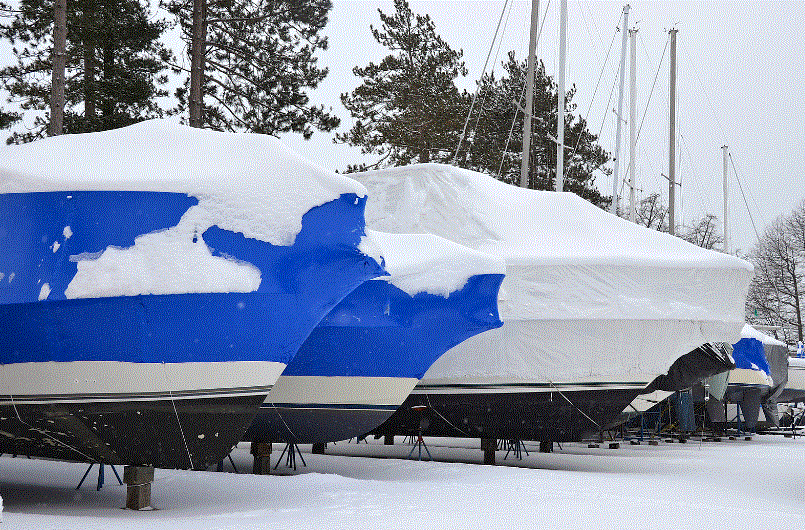Winter in Quebec brings its share of cold and snow, which means it’s time to prepare your boat for the winter season. Proper storage is essential to protect your valuable watercraft from damage caused by harsh winter conditions. In this blog, we will provide you with practical advice for properly storing your pleasure boat and keeping it in perfect condition for the next summer season.
1. Find a suitable storage location
Choosing a storage location is crucial to ensuring the safety of your boat. If you don’t have a suitable garage or storage facility, look for a marina or storage center that specializes in boats. Make sure the location is well protected from bad weather, strong winds and snowfall to avoid any risk of damage.
2. Deep clean the boat
Before storing your boat, take the time to clean it thoroughly. Remove all dirt, algae and other residue from the hull and engine. Drain the water from all the pipes and add the appropriate antifreeze. Also be sure to dry the boat thoroughly to prevent mold from forming during storage.
3. Special attention to the seats
To ensure complete protection of your boat’s seats during the winter, we recommend that you remove them and store them indoors, in a dry, cool place. If this is not feasible, opt to use covers specifically designed for boat seats. Make sure that these covers are not only waterproof and weatherproof, but also able to protect against vermin infiltration. This measure is crucial to prevent rodents and other small animals from damaging the upholstery and seat coverings. Before covering your seats, give them a thorough cleaning to remove any dirt and moisture, which could cause mold to form during storage. By taking these protective measures, you guarantee that your seats remain in excellent condition and ready for use as soon as the warm weather returns.
4. Make necessary repairs
Take advantage of the end of the season to inspect your boat and identify possible problems or damage. Repair anything that needs to be repaired, whether it’s hull cracks, faulty parts or damaged equipment. This will save you from unpleasant surprises next season.
5. Drain Fluids
Drain the fuel tank, water tank, and all engine fluids, such as oil and coolant. Fluids left in the boat can freeze and damage internal engine components. Remember to follow the manufacturer’s recommendations for draining procedures specific to your boat.
6. Protect the engine and equipment
Once you have drained the fluids, protect the engine by using antifreeze specifically designed for boats. Apply an anti-corrosion spray to exposed metal parts to prevent oxidation. Also remove the battery and store it in a dry and cool place.
7. Remove non-essential accessories
Avoid leaving expensive or sensitive accessories on the boat during the winter. Theft and vandalism can occur, even in secure storage areas. Remove all electronic devices, GPS, seats and other equipment that could be damaged or stolen during the winter.
8. Cover the boat carefully
A quality cover adapted to the size of your boat is essential to protect it from bad weather. Make sure the cover is secure and completely covers your boat. This will help prevent snow and water accumulation, reducing the risk of damage.
In conclusion, by following these tips, you preserve the value and performance of your boat for the next season. An adequate shed will allow you to fully enjoy your boat on the first sunny days. Questions related to your boat insurance? Do not hesitate to contact your broker with all your questions and remember that prevention is the key to avoiding costly repairs due to damage caused by winter.
Happy wintering!







